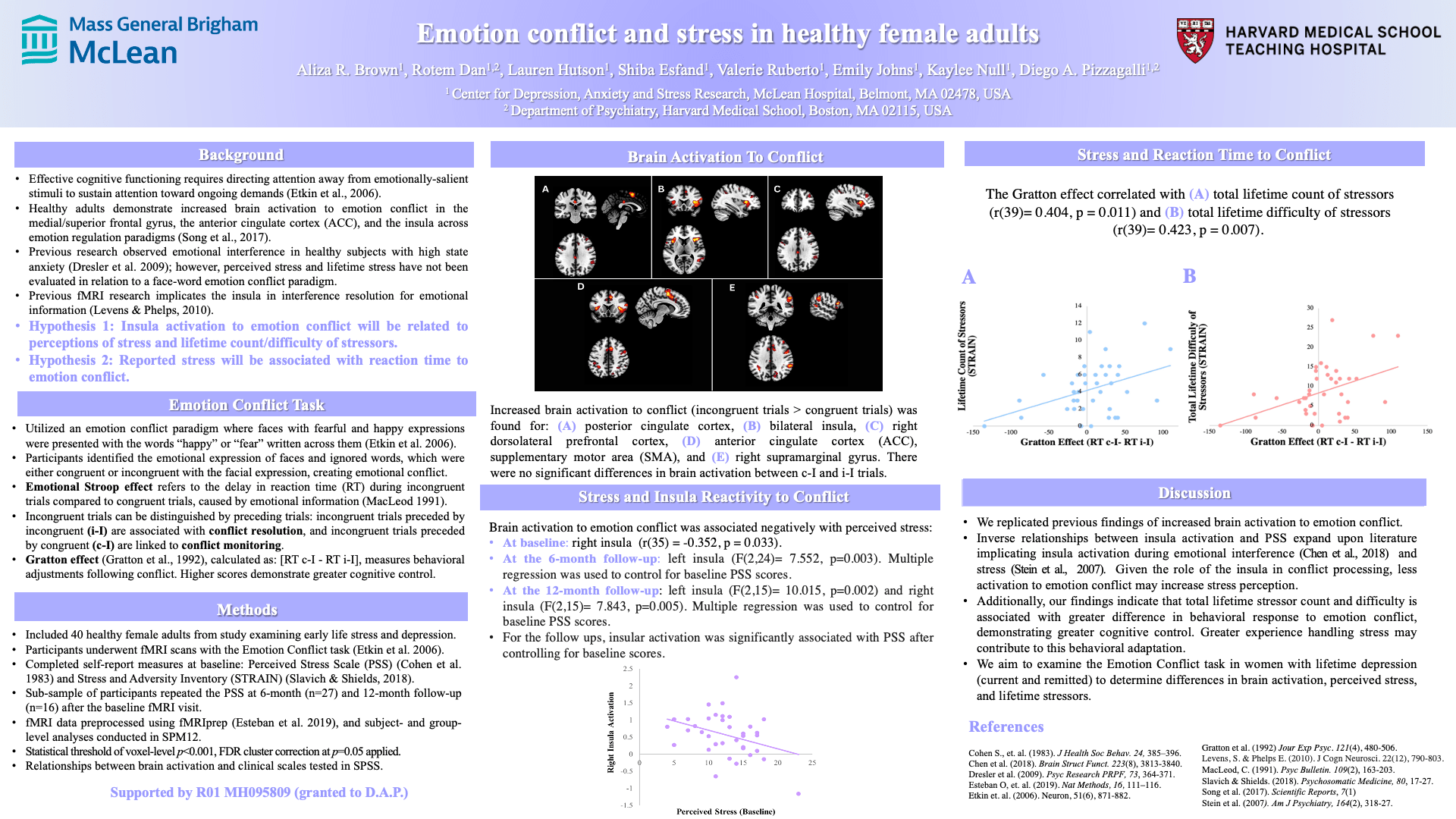Scientific Abstract
Background: Effective cognitive functioning requires directing attention away from emotionally-salient stimuli to sustain attention toward tasks. Previous research implicated the insula in conflict processing. We aimed to examine the association between insula activation to conflict processing and stress and hypothesized that stress would be associated with reaction time to emotion conflict.
Methods: 40 healthy women completed the Emotion Conflict task during an fMRI. Participants were instructed to detect facial emotion expressions and ignore overlapping words (either congruent or incongruent with the expression). Conflict monitoring and resolution were assessed based on current trial (incongruent) and previous trial type. Participants completed the Perceived Stress Scale (PSS) at three time points and the Stress and Adversity Inventory (STRAIN). We examined the Gratton effect, which measures behavioral adjustments following conflict, with higher scores demonstrating greater cognitive control.
Results: Participants had greater reaction time to incongruent than congruent trials (t(39)= 4.02, p < 0.001). There was increased activation to conflict in the posterior cingulate cortex, bilateral insula, right dorsolateral prefrontal cortex, anterior cingulate cortex, supplementary motor area, and right supramarginal gyrus. Increased insula activity to conflict was associated with lower PSS at baseline (right; r(35)= -0.352, p= 0.03), 6-month follow-up (MFU) (left;(F(2,24)=7.552, p=0.003)), 12MFU (left insula (F(2,15)=10.015, p=0.002) and right insula (F(2,15)=7.843, p=0.005). Multiple regression was used to control for baseline PSS scores. The Gratton effect correlated with lifetime stressors count (r(37)= 0.404, p = 0.01) and stressors difficulty (r(37)= 0.423, p = 0.007).
Conclusion: We found insula activation to emotion conflict was related negatively to stress at multiple time points. Given the role of the insula in conflict processing, less activation to emotion conflict may increase stress appraisal. We also showed that greater perceived stress was associated with greater cognitive control. More experience with stress may contribute to this behavioral adaptation.
Search posters

